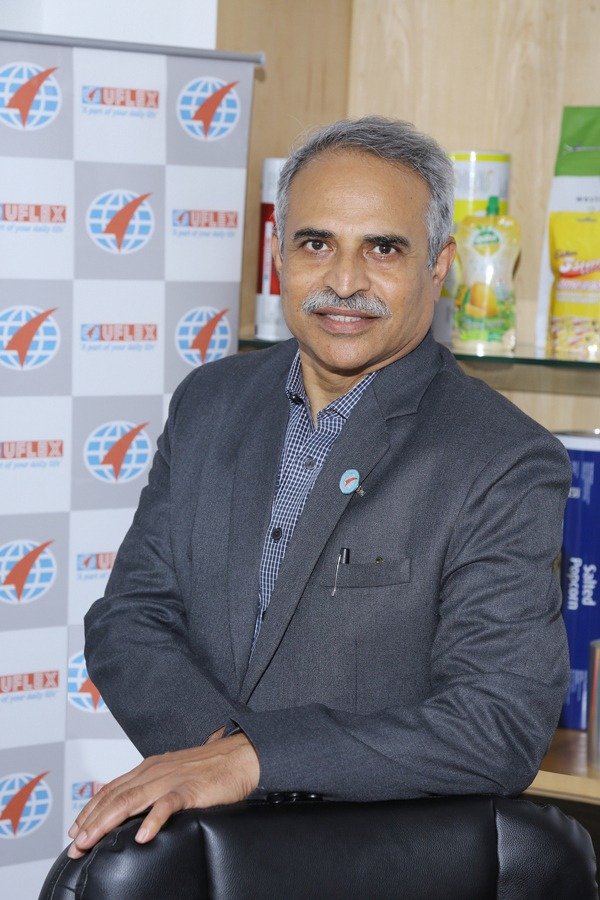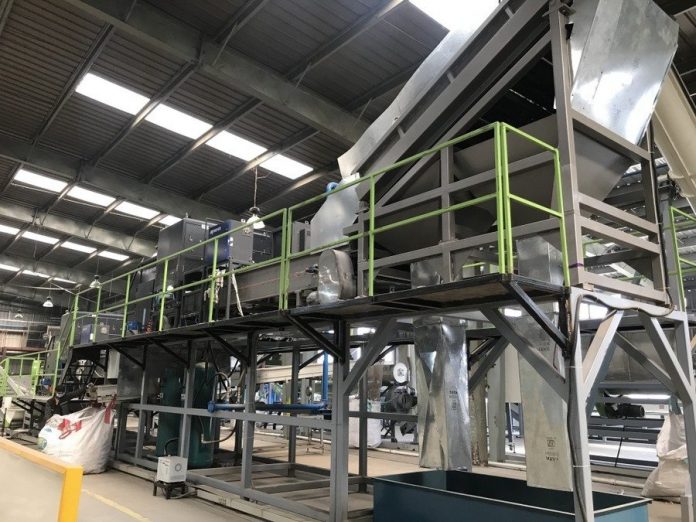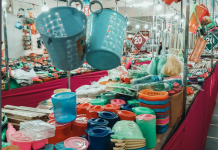Indian flexible packaging major, Uflex, set up two lines in Noida to recycle post-consumer plastic waste to chips and granules that are put into further use to make products with economic value. While one line washes and recycles polyethylene terephthalate (PET) bottles, the other line is for washing and recycling multi-layer plastic packaging. According to Uflex, this initiative is in-line with its sustainability campaign, Project Plastic Fix, to keep plastic in the economy and out of the environment.
“We have always been a zero discharge company recycling all our in-house plastic waste over the years. Our recycling technology was recognized by then prime minister Manmohan Singh, and at Davos by the Swiss government. Then we thought of extending our technology to making PCR Asclepius films, which we have successfully supplied globally. Now, our own and end-user plastic waste is being collected and recycled in our plant,” says Jeevaraj Pillai, joint president – Packaging and New Product Development at Uflex.

Post-consumer waste has a significant amount of dirt and unwanted impurities to be cleaned before recycling. “The cleaning technology was ingeniously developed. All the waste undergoes various stages of cleaning, where unwanted dirt and oils are removed. The waste is also PH neutralized by adding salt as a balancing agent.”
PET bottle recycling line
The PET bottle recycling line used waste from NGOs and Waste Collection Agencies in the Delhi-NCR area. It can recycle 20 tons of PET daily or about 600 tons monthly. Currently, 450 tons of PET waste is recycled each month. The collected PET bottles are first put in a debaler where the PET bottles are thoroughly washed. A second cleaning unit called the trommel, or dry washing unit further removes dirt from the bottles, which are then passed through a magnetic system that eliminates any metallic contamination. De-labeling is done in the next stage, followed by de-capping. The bottles are then sorted by near-infrared cameras that separate PET bottles from PP or HDPE bottles, allowing only the PET bottles to pass.
The transparent PET bottles are crushed and shredded to flakes. This slurry passes through a floatation tank where any leftover waste such as caps or other metal contaminants, is removed. In the floatation tank, caps or metal contaminants having a lighter density, approximately 0.92g/cm3 rise up to the surface of the water, and PET bottle flakes with a density of more than 1g/cm3 submerge in the liquid and pass to the next phase. Here two hot washers with water at 90 degrees centigrade mixed with detergent, rewash the flakes.
The clean flakes are then passed through a de-watering unit like a spin dryer that removes all the water from the chips. The flakes are then passed through three more floating steps and a dryer to remove the water and moisture. The dried PET flakes pass through another sorting unit equipped with an optical camera that separates the colored and transparent chips. The transparent flakes are then passed through an extrusion machine where they extruded. The extruded melt is passed through a water cooling chamber and a die-face cutter that cuts the cold melt into small granules. Since the PET bottles are transparent and virgin, chips derived as a result of the recycling process are upcycled to manufacture a particular range of PCR grade BOPET film called Asclepius. The Asclepius films are used for multiple packaging and label material applications.
Mechanism of multi-layer plastic recycling line
The post-consumer multi-layer plastic (MLP) waste collected from the Delhi-NCR is sourced from NGOs, producer responsibility organizations (PRO), as well as producers and brand owners directly. The post-consumer plastic recyclate (PCPR) plant can wash and recycle nearly 500 tons of MLP laminates each month.

A conveyor brings the laminates to a shredder, and the shredded plastic is then put through a frictional washer to remove the unwanted dirt. It is further passed through a high-speed loader and again thoroughly cleaned. The slurry is sent to a de-watering machine that eliminates the remaining dirty water.
The de-watered plastic shreds are passed through a floatation tank where the denser particles submerge in the water, and the impurities rise to the surface. These particles are then passed through a squeezer where the moisture is removed and heated to densify them. A conveyor takes this material to an extruder for conversion to granules. The PCPR granules are used for making household products such as flower pots, outdoor furniture, bucket, dustbins, paver tiles, and road dividers.










